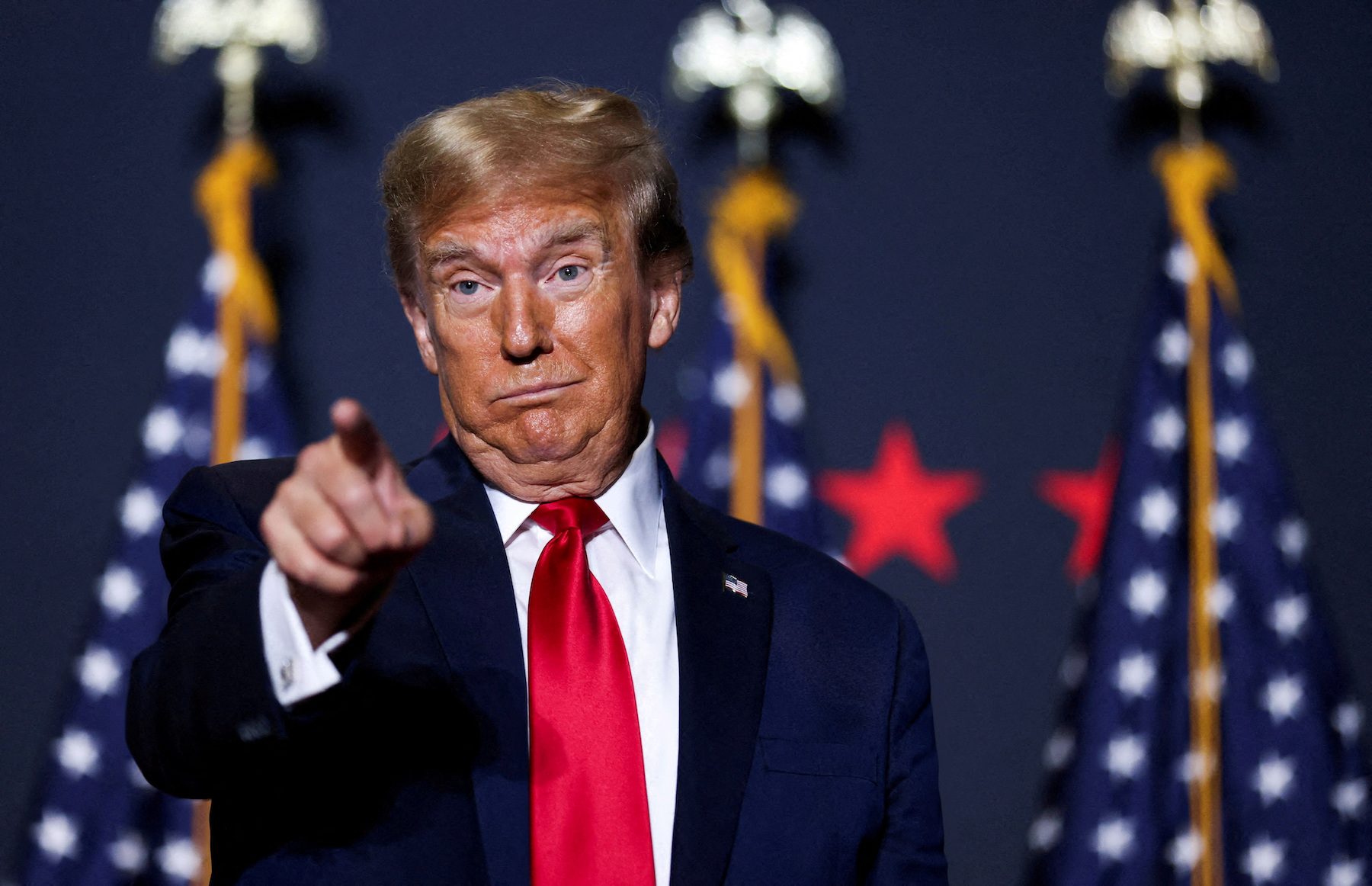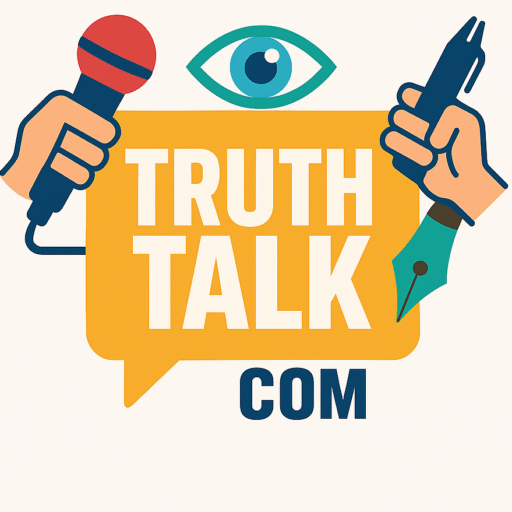Trump Breaking Moment on Truth Social
On July 12, 2025, former President Donald J. Trump escalated one of Hollywood and politics’ most infamous feuds by declaring on Truth Social that he is considering revoking actress and comedian Rosie O’Donnell’s U.S. citizenship. His post read:

“Because of the fact that Rosie O’Donnell is not in the best interests of our Great Country, I am giving serious consideration to taking away her Citizenship. She is a Threat to Humanity, and should remain in the wonderful Country of Ireland, if they want her. GOD BLESS AMERICA!”
The controversial message has ignited widespread public debate, triggering legal scrutiny, political condemnation, and fierce backlash across social media. The statement marks a dramatic and constitutionally questionable turn in a feud that has persisted for nearly 20 years. Trump Threatens to Strip Rosie O’Donnell of U.S. Citizenship – The New York Times
Why Ireland? O’Donnell’s Relocation Explained
Earlier this year, Rosie O’Donnell relocated to Ireland along with her non-binary child. The move, she explained, was motivated by concerns over Donald Trump’s second presidential term and its potential consequences for civil liberties in America. O’Donnell cited reading Project 2025 — a conservative policy blueprint — as a major factor in her decision to leave the U.S. just days before Trump’s inauguration.

In various interviews, O’Donnell said she feared for her family’s future and mental well-being under the shifting political climate. Ireland, she stated, provided a sense of peace and safety she could no longer find in the United States. The country also holds a special connection for O’Donnell, who has Irish ancestry and has spoken fondly of her visits there in the past.
Since relocating, O’Donnell has expressed appreciation for the warm welcome she and her family have received. She has described life in Ireland as “a necessary breath of fresh air” and mentioned exploring permanent residency or dual citizenship options. She has also continued to engage with her fans and followers through social media and virtual events, maintaining her public voice while staying out of the direct line of political fire.
Constitutional Limits: Why Trump’s Threat is Empty
Legal experts were quick to note that the president of the United States does not have the authority to revoke a person’s citizenship. The Fourteenth Amendment of the Constitution guarantees birthright citizenship to all persons born or naturalized in the U.S., and only Congress or the federal courts can legally strip someone of that status.
Throughout his political career, Trump has made repeated attempts to challenge birthright citizenship and revoke naturalized citizenship. Each effort has been struck down by the courts, establishing firm legal precedent against unilateral executive action in this area.
Constitutional scholars universally agree that Trump’s statement is legally unfounded and serves more as political theater than actionable policy. Even during his first term, when Trump floated similar ideas regarding undocumented immigrants and naturalized citizens, courts across the country reaffirmed that citizenship is a legal status that cannot be taken away without due process.
Experts also warn that statements like Trump’s can have chilling effects on free speech and political dissent. By targeting a high-profile critic like O’Donnell, Trump sets a precedent that could intimidate others from speaking out. This concern is echoed by several civil rights organizations, who view the rhetoric as a dangerous slide toward authoritarianism.
Flashpoint: The Texas Floods and Political Blame
O’Donnell’s most recent criticisms of Trump stem from the devastating floods in Texas, which claimed over 120 lives. In a viral social media video, she placed blame on Trump-era policy cuts to the National Weather Service and FEMA that, according to her, crippled early-warning systems and disaster preparedness.
Her comments gained traction online and among progressive circles. In retaliation, Trump lashed out with his now-infamous statement branding her a “threat to humanity” and calling for her to stay in Ireland. The timing of his statement, just days after the flooding crisis, suggests that the natural disaster may have been the catalyst for his renewed hostility.
Environmental groups and meteorologists have also criticized the rollback of climate and disaster response funding during Trump’s previous term, lending some weight to O’Donnell’s concerns. While causality is difficult to prove, her statements tapped into a broader national conversation about the impacts of deregulation and federal agency downsizing.
Two Decades of Feuding
The Trump-O’Donnell feud dates back to 2006, when Rosie mocked Trump on “The View” over his decision to give Miss USA Tara Conner a second chance after her involvement in a drug scandal. O’Donnell questioned Trump’s moral authority, calling him a “snake-oil salesman” and mocking his multiple marriages and bankruptcies.
Trump, in turn, launched a series of personal attacks through the media, labeling O’Donnell “a real loser,” “fat,” and “a woman out of control.” The feud reignited over the years, especially during Trump’s first campaign and presidency.
Highlights from their long-running clash:
-
In 2011, Trump mocked O’Donnell’s engagement, calling it a “tragedy.”
-
In the 2015 GOP debate, he dismissed allegations of sexism by saying he only insulted “Rosie O’Donnell.”
-
O’Donnell protested outside the White House in 2017, calling Trump’s presidency “terrifying.”
-
In 2020, O’Donnell released a podcast episode describing Trump as a “clear and present danger to democracy.”
Their rivalry, while sometimes humorous, has grown darker with political overtones and real-life consequences. O’Donnell has described Trump as obsessed with her, claiming that he uses her as a scapegoat to energize his base. Trump, on the other hand, has consistently used O’Donnell’s name as a punchline to rile up supporters at rallies and during interviews.
Who is Rosie O’Donnell?
Rosie O’Donnell rose to fame as a stand-up comedian and actress before becoming a household name through her Emmy-winning daytime talk show, “The Rosie O’Donnell Show.” Known for her quick wit and advocacy, she became a powerful voice in media and progressive politics.
O’Donnell publicly came out in 2002 and has since become a prominent LGBTQ+ rights advocate. She has adopted and fostered several children, raised millions for children’s charities, and survived major health scares, including a heart attack in 2012.

She has also spoken openly about her struggles with depression, PTSD, and childhood trauma, which has helped destigmatize mental health discussions in the public sphere. In addition to her work in entertainment, O’Donnell has written several memoirs and essays addressing both her personal life and broader social issues.
Her influence extends beyond Hollywood. As a political commentator, philanthropist, and activist, O’Donnell has supported causes ranging from gun control to public education reform. Her voice remains influential among liberal audiences, and her willingness to confront powerful figures like Trump has earned her both praise and controversy.
Public Reactions and Media Backlash
Public response to Trump’s citizenship threat has been swift and polarized. Legal experts condemned it as unconstitutional, while civil rights groups expressed concern over the normalization of authoritarian rhetoric.
Social media platforms exploded with reactions. Many users mocked Trump for making such a legally impossible threat. Others expressed solidarity with O’Donnell, praising her courage and longstanding advocacy.
O’Donnell responded with her trademark bluntness, calling Trump “a criminal con man, sexual-abusing liar” and reaffirming her stance against his presidency. Her comments have sparked further discussion on platforms like TikTok, YouTube, and Reddit, where users have created videos and memes supporting her.
Progressive politicians and celebrities have also weighed in. Several Democratic senators issued statements defending O’Donnell’s right to free speech, and late-night hosts devoted segments to the controversy. Meanwhile, Trump allies have defended his remarks as free speech, calling O’Donnell “unpatriotic” and “out of touch.”
Project 2025 and Fear of Autocracy
At the heart of O’Donnell’s decision to leave the U.S. is Project 2025, a conservative political agenda created to reshape the executive branch. Critics argue it aims to consolidate presidential power, weaken federal agencies, and roll back progressive reforms.
For O’Donnell, the project symbolizes a dangerous shift toward authoritarianism. In her view, remaining in the U.S. under such a regime posed a threat not only to her family but to democracy itself.
She has spoken at length about the project’s goals, warning that it could result in the erosion of civil liberties, suppression of dissent, and rollback of social protections. These concerns are echoed by many legal scholars, journalists, and advocacy groups, who see Project 2025 as a roadmap for dismantling the administrative state.
What Happens Next?
While Trump’s statement is unlikely to have legal consequences for O’Donnell, it signals the increasingly aggressive posture of American political discourse. The incident underscores the blurring lines between entertainment, politics, and personal vendetta.
O’Donnell, now based in Ireland, continues to speak out through interviews, podcasts, and social media. Her legacy as a cultural figure and activist is arguably being reshaped by this latest chapter in her long battle with Donald Trump. She has hinted at releasing a new book that would detail her experiences during this time, offering an insider’s perspective on celebrity, politics, and resilience.
Observers believe this feud could influence upcoming elections, particularly among independent voters concerned about authoritarian overreach and free speech. With O’Donnell positioned as both a celebrity and a political dissident, her story may resonate far beyond the tabloid headlines.
Conclusion
Donald Trump’s threat to revoke Rosie O’Donnell’s citizenship is not only unconstitutional but emblematic of a broader trend in American politics where personal grievances are weaponized on public platforms. What began as a TV feud has now spilled into serious constitutional territory, raising concerns about civil liberties, executive overreach, and the future of political dissent.
Rosie O’Donnell stands not just as a comedian or celebrity, but as a symbol of resistance against authoritarian rhetoric. Her story is one of resilience, advocacy, and, perhaps, reluctant exile—and her ongoing feud with Trump is a reminder that in today’s America, the personal is often deeply political.
As the political climate continues to evolve, O’Donnell’s journey from daytime talk show host to outspoken expatriate activist paints a vivid picture of what it means to live through turbulent times with integrity, courage, and an unwavering commitment to justice. Whether one agrees with her politics or not, her willingness to confront power remains a defining trait of her public persona—and an enduring symbol in the battle over America’s soul.
